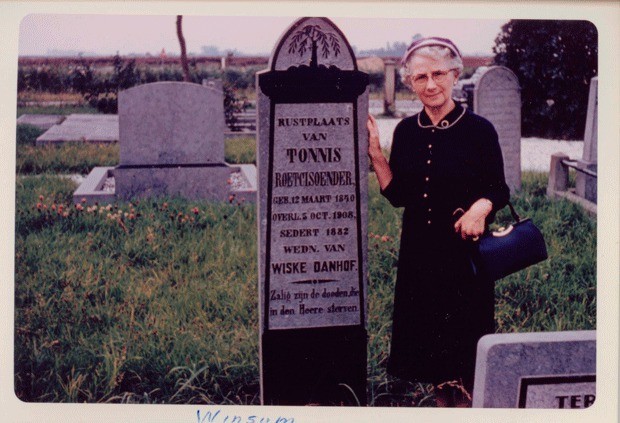There’s always a black sheep somewhere.”
So says Ruth Hancock, program chairman for the Whidbey Island Genealogical Searchers, which is known as WIGS by its members.
For her, the black sheep in her family tree is her husband’s grandfather, though everybody seemed to have different stories about him.
“He was a rum-runner,” she said, “or just weird stuff. He owned a rubber plantation in America.”
Running down such stories — both good and bad — of ancestors is part of the fun of genealogy research, though getting to the truth can be pain staking and time consuming.
Fortunately, genealogical societies are here to help.
WIGS is a genealogical society located in North Whidbey, and has about a hundred members now, according to Hancock. Another genealogy club, the Genealogical Society of South Whidbey Island, has more than 80 members, and has at times had more than 100, according to former president Laura Roetcisoender.
Roetcisoender is the beginning education instructor for the South Whidbey group, but has been both vice president and president of the club during her membership.
Her most interesting ancestor she’s found is her third great-grandfather on her father’s side. He was one of the reasons why she started doing genealogy.
“I was curious to see why the name was changed and when,” she said.
This ancestor, Johan Roetcisoender, née Rutischauser, was originally from Switzerland, but emigrated to the Netherlands in the 1790s, where he was told to change his name because it “sounded too German.”
Laura Roetcisoender eventually wrote a book on her family history, “The Rutischauser/Roetcisoender Story From Switzerland to the Netherlands to America 1562 — 1923.” This book covers her paternal ancestors back 10 generations from her.
“I’m very lucky in genealogy,” she said. “I had a very lucky experience.”
On a research trip to Turner County, in South Dakota, Roetcisoender discovered through sheer luck that she is related to almost half the county. She discovered this through another genealogist there, who was in charge of the records of a cemetery and showed Roetcisoender her own family tree. Roetcisoender spotted her mother on the tree and found out they were second cousins, once removed.
This is one of the reasons why Roetcisoender thinks more people should be interested in genealogy.
“I think if we know who our ancestors were and something about them, it gives us reasons to be proud of those people, think about them, who they were, what their lives were like, their families,” she said.
To Roetcisoender, genealogy is “like a mystery and a puzzle,” but finding relatives isn’t as easy as going online and using a search engine.
“The only time you can trust what’s online is if the website or individual has an actual document that proves whatever it is saying,” she said. “Without documents, all you have is mythology.”
For Hancock, her interest in genealogy started with her grandfather, who kept a detailed family tree.
“I looked at it and I thought I saw some pieces missing,” she said. “That’s how I started. I’ve been trying to fill in the blanks ever since.”
Hancock has been interested in genealogy since before she was a teenager, and she’s been a member of WIGS since 1994.
Hancock said that more than anything else, people ask her why she does genealogy.
“They just can’t understand. That was the question they asked most often, and I tell them, well, it’s fun, it’s just so much fun,” she said. “You get so excited when you find something about your old relative.”
Both Hancock and Roetcisoender recommend joining a genealogy society for anyone interested.
“You get ideas on how to do it, where to look, different websites,” said Hancock.
Roetcisoender said that societies also help teach newcomers how to go about the research in a way that ensures the research is as accurate as possible. The Genealogical Society of South Whidbey Island also offers classes on how to research genealogy, both a beginner and intermediate class, as well as how to use genealogical software on computers.
“We also have focus groups, we have mentors and we’re just a great, fun group,” Roetcisoender said.
For people just starting out, Hancock offers a bit of advice: “List all the things you know about each person. Where they were born, when they were born, who they married, starting with yourself and going backwards. That will tell you where the holes in your story are.”
WIGS meets the second Tuesday of every month at the Heller Fire Station, usually around 2 or 3 pm. Joining is as easy as showing up and signing up. GSSWI holds meetings the second Monday of each month from September through June. Meetings start at 1 pm. The first two meetings are free, and membership is only $15 a year, $25 for a household.
For more information on WIGS, call Ruth Hancock at 360-675-4086. For more information on GSSWI, go to gsswi.org.



